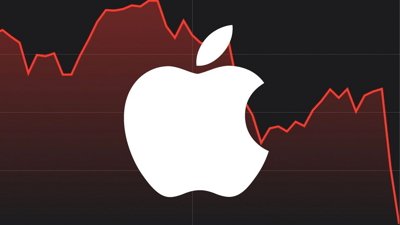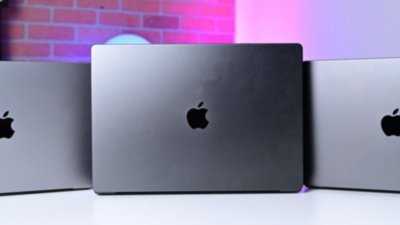NPD data released Monday shows Mac sales for the month of February fell 16% when compared to February of 2008. Gene Munster, an analyst with Piper Jaffray, analyzed the data alongside tepid results from January and his expectations for March.
His conclusion: Apple will still manage to sell 2.0 to 2.2 million Macs for the combined period of January through March, which would represent yearly Mac unit growth of anywhere from -13% to -4%, or a rate that's likely to fall in line to slightly behind Wall Street's average expectations of -4% growth. Apple shipped 2.289 million Macs last March quarter.
"[We] note that year-over-year Mac performance faced a tough comp in the month of February 2009 due to the February 2008 MacBook Air launch," the analyst told clients in a research note. "That said, we expect Mac NPD data to rebound in the month of March due to the shipment of new iMacs, Mac minis, and Mac Pros in early March."
Therefore, Munster believes the data should be "perceived as a neutral or a slight positive" given the uncertainty surrounding the March quarter due to a pullback in consumer spending that's resulted from the grim state of the global economy.
Following a trend similar to that of the Mac line, iPod shipments also fell 16% year-over-year during the month of February, according to NPD. After applying some analytics, Munster said he believes combined March quarter shipments will come in anywhere from 9.0 to 10.0 million units, compared to Street expectations of 9.5 million units.
"This range implies year-over-year iPod unit growth of -15% to -6% vs. the Street at-11% year-over-year," he wrote. "Given concerns regarding iPod weakness, we believe the segment's in-line performance relative to Street expectations is a positive."
The analyst appears to have weighed a portion of his quarterly expectations for full-quarter iPod sales on expectations that "shipment of new iPod shuffles, announced on 3/11, will likely drive improvement in the data in the month of March."
Piper Jaffray maintained its Buy rating and $180 price target on shares of Apple.
 Sam Oliver
Sam Oliver
-m.jpg)






 Malcolm Owen
Malcolm Owen
 Oliver Haslam
Oliver Haslam
 Amber Neely
Amber Neely
 Marko Zivkovic and Mike Wuerthele
Marko Zivkovic and Mike Wuerthele

 Andrew Orr
Andrew Orr











92 Comments
March sales should reflect the March upgrades: poor.
How to increase Mac sales: place at least one Firewire port on Macbook and MacBook Air (also with Ethernet port and at least two USB2 ports). No such ports, no purchase. That simple.
How to increase Mac sales: place at least one Firewire port on Macbook and MacBook Air (also with Ethernet port and at least two USB2 ports). No such ports, no purchase. That simple.
What. LOL i never use those ports why do I need them?
The sales dropped because Mac users are smart and knew that new models where due out any day in March so refrained from purchasing until the new machines were released. You don't have to be the head checker at WallMart to figure that out.
I'm not going to go into discussing details like firewire and processor speeds, but it is obvious to me that Apple should start updating their computer lines more often. The fall in number of iPod sold doesn't surprise me: the market is literally saturated with iPods and would-be iPods, from the expensive to the cheap kinds.
Apple computers, however, will always be unique in design and performance. Let's not forget Apple Inc of today is in fact still a hardware company. All the other branches of business strongly rely on continued and increasing hardware sales. One can see from the success that Apple is enjoying now that people are ready to make the switch (and this despite Apple's premium and the economy). However, today's consumers are not as naive as they once were: they know what questions to ask and what answers to expect. The trick to keep selling hardware is to make sure that however impressing the package, the insides always stay ahead of the competition. The February update was long overdue and, on the face of the incredible success of the new Mac Mini, I'm not the only one to think this way. In my opinion, all of Apple computers should have revisions every 3 to 4 months to keep the specifications of the machines as high as technologically possible in their respective price point. Also, they should introduce a major product upgrade as soon as a new architecture is available (or sooner if Intel and Apple keep being good friends as today).
On another note, Apple's success could easily be tripled by a simple trick: proper support of right-to-left languages in their leading iLife and iWork applications - and I imaging other ones too. For the moment, these programs are a nightmare to work with for those who want to use Hebrew or Arabic (BTW, MS Office for Mac also doesn't work well with RTL languages). Should they fix that, they could open new doors to a level of success they haven't enjoyed so far.
Wishful thinking?